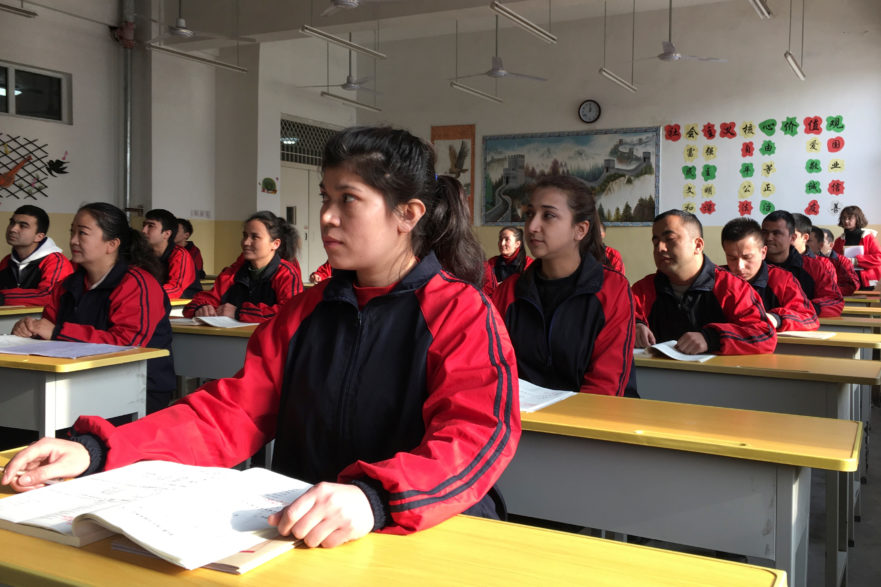In China’s northwest province of Xinjiang, family members are disappearing. Arfat Aeriken is a Uyghur Muslim who lost contact with his family in 2017. While studying in the U.S., Arfat learned that his father was sentenced to a nine-year prison term and his mother was sent to a concentration camp. He does not know what has happened to his 10-year old brother.
Tahir Imin is a Uyghur activist, also living in the U.S. He was imprisoned in China for writing about the government’s oppression of the Uyghur community before escaping to the U.S. His stepmother, sisters, and brothers all remain in jail. “I have lost every kind of contact to my daughter,” says Tahir. “Every day is a painful day without your family members.”
By many accounts, the Chinese government is engaged in a 21st century cultural genocide that rivals Mao’s cultural revolution. International human rights groups estimate more than one million Uyghurs — like the families of Arfat and Tahir — have been detained in mass internment camps. There, they are forced to abandon their native language, religious beliefs and cultural practices. An additional 10 million Uyghur and minority groups are subjected to a dense network of surveillance systems and checkpoints that severely limit all forms of personal freedom.
China denies allegations of human rights violations, instead portraying the camps as benign, vocational training centers. These so-called “re-education centers” are part of an ongoing campaign to combat what China describes as wide-scale, internationally linked threats of terrorism. But credible reports describe something more sinister underway at these facilities. First-hand accounts of torture, beatings, food deprivation, lack of medical treatment, and denial of religious, cultural and linguistic freedom have been documented. Now, there are reports of harassment and intimation of U.S. citizens and lawful permanent residents (LPRs).
“The United States must hold Chinese government and Communist Party officials responsible for gross human rights violations and possible crimes against humanity,” said Sen. Marco Rubio (R-FL), who reintroduced legislation last week with Sen. Bob Menendez (D-NJ) in response to China’s abuse of Uyghurs and other ethnic minorities. The Uyghur Human Rights Policy Act urges high-level U.S. engagement on this issue, including the application of the Global Magnitsky Act and related sanctions, as well as full implementation of the Frank R. Wolf International Religious Freedom Act.
Every day is a painful day without your family members
“The time for action is now,” added Rubio, saying the initiative “elevates the current crisis in Xinjiang, puts forth policy options to address it, and signals that we will not tolerate Chinese government intrusions on American soil.”
In the House, Rep. Chris Smith (R-NJ) and Rep. Thomas Suozzi (D-NY) introduced a companion bill — H.R. 649. “The brutal, religious based persecution of the Uyghurs in China is alarming,” said Suozzi. “The Xinjiang province has become nothing short of a police state.”
As the Trump administration continues to focus attention on redefining the U.S.-China trade relationship, 21Wilberforce applauds efforts in Congress to also confront the human rights crisis propagated by the Communist Party in Beijing.
Take Action
- Watch this chilling report about persecution of Uyghurs
- Urge legislators to support the Uyghur Human Rights Policy Act of 2019
- Read how 21Wilberforce is supporting efforts to apply pressure on the Chinese regime
[Photo credit: Reuters] Re-education center for Uyghur Muslims in Xinjiang, China

